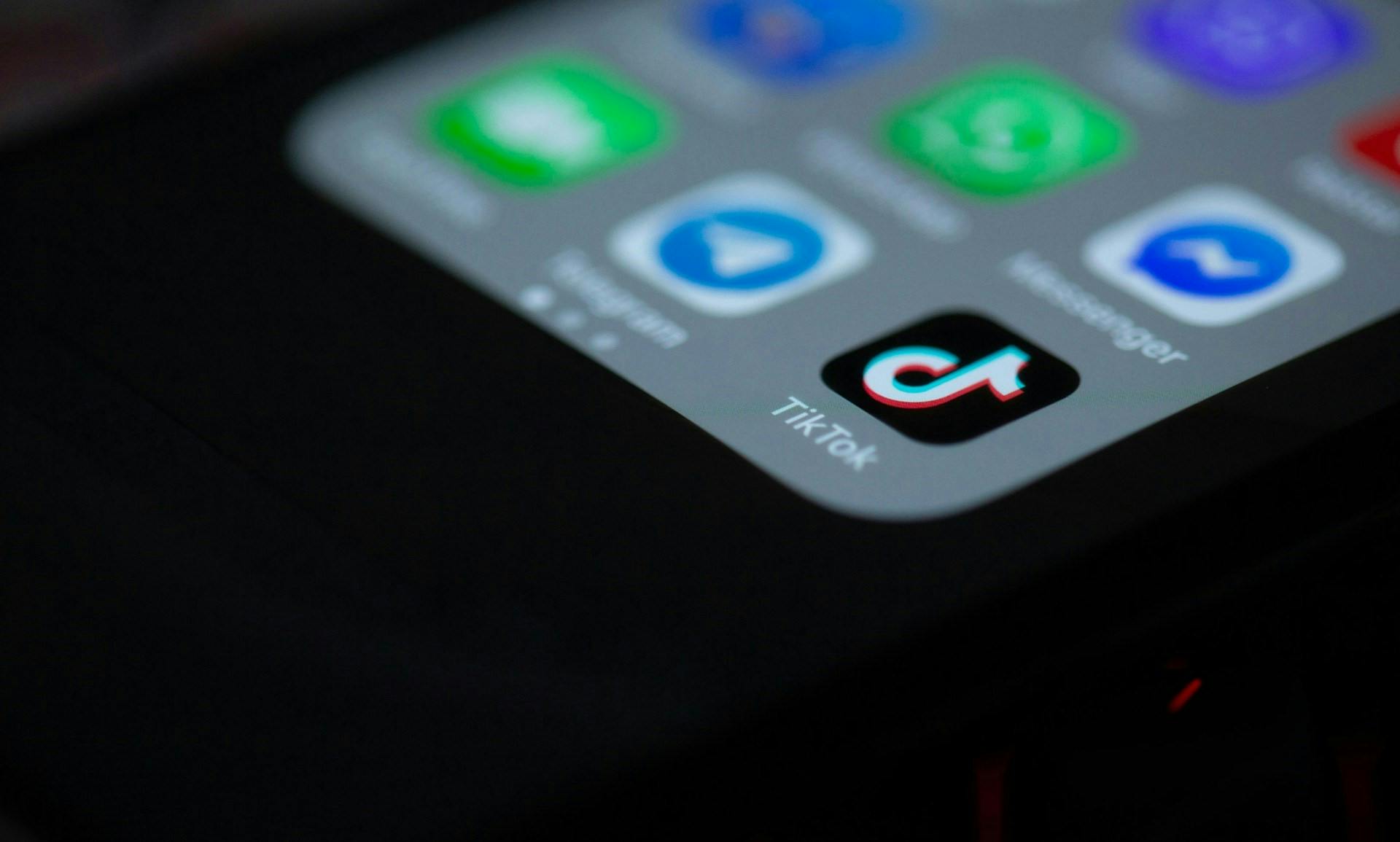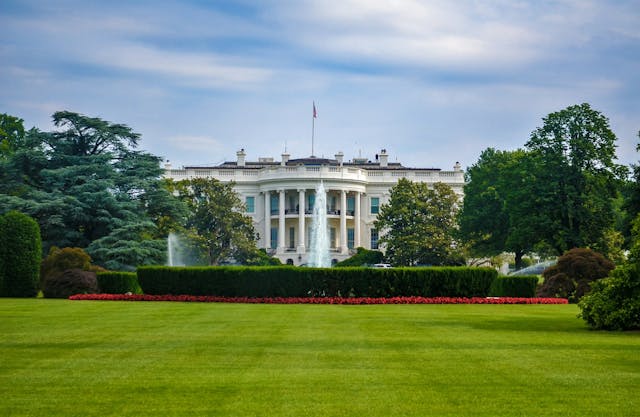TikTok Has No Place in the Two-Party Duopoly

Photo by Solen Feyissa on Unsplash
The late comedian George Carlin once said, "The word 'bipartisan' usually means some larger-than-usual deception is being carried out." And in the case of a bill that could lead to a domestic ban on the social app TikTok, this may indeed be the case.
The US House of Representatives voted 352-65 Wednesday in favor of a bill (HR 7521) that would ban TikTok, a social media app used by approximately 170 million Americans, if Chinese tech company ByteDance refuses to divest from it.
The reason lawmakers on both sides of the political aisle give for supporting the potential ban is a threat they say TikTok poses to national security via access to Americans and their data despite TikTok's promises that American data does not go to the Chinese government or any government for that matter.
“This is my message to TikTok: break up with the Chinese Communist Party or lose access to your American users,” US Rep Mike Gallagher, the bill's co-author, said upon introduction of the bill.
"America’s foremost adversary has no business controlling a dominant media platform in the United States. TikTok’s time in the United States is over unless it ends its relationship with CCP-controlled ByteDance," he added.
Opponents of the bill point out that there is no evidence of a direct connection between TikTok and the CCP. However, they assert that the US will engage in the same type of censorship lawmakers and officials condemn the CCP for using if it bans an app used by half of the nation's population.
US Rep Jim Himes, a ranking member of the House Intelligence Committee, said adversarial companies "shut down newspapers, broadcast stations, and social media platforms. We do not."
Himes added, "We trust our citizens to be worthy of their democracy. We do not trust our government to decide what information they may or may not see."
US Rep. Thomas Massie said "Americans have a right to view information. We don't need to be protected by the government from information."
What's In the Bill
HR 7521 or the " Protecting Americans from Foreign Adversary Controlled Applications Act" doesn't just apply to TikTok, though TikTok and ByteDance are specifically singled out in it.
In short, the bill would require any app that the President of the United States (who would enforce the law) determines is controlled by a foreign adversary to divest within 180 days. What exactly that means is up to the president.
The president would have the authority to determine what a “qualified divestiture" means and could designate certain social media apps as “subject to the control of a foreign adversary."
Put simply, even though the bill singles out TikTok, the president could target other social media apps at his or her own discretion.
If signed into law, ByteDance would be forced to sell TikTok (presumably to a US-based entity). If it refuses, all US-based app stores and web-hosting services will not be allowed to provide TikTok to the public anymore.
Some lawmakers have expressed concern over the broad scope of power the bill gives to the president.
During his speech on the House floor, Rep. Massie said that while supporters of the bill say TikTok is a Trojan horse for the Chinese government, the legislation "whether intentionally or unintentionally is actually a Trojan horse."
"Some of us just don't want the president picking which apps we can put on our phones or which websites we can visit. We don't think that's appropriate," he said. "We also think it is dangerous to give the president that kind of power."
He added that the "bill is written so broadly that the president could abuse" the discretion of what apps apply "and include other companies that aren't just social media companies."
Is The Bill Really About Protecting Americans?
Lawmakers moved quickly to pass the bill. It was introduced on March 5 and got a floor vote not even 10 days later. Congress is known for moving at a snail's pace on anything, and yet lawmakers moved surprisingly fast on this matter.
Congress was inundated with calls from TikTok users, The app helped people contact their representatives to express objection to the bill. AP reported that so many people reached out that "some offices shut off their phones."
Some lawmakers got so fed up with hearing from their constituents that they cut off that connection entirely. Rep. Gallagher called it "a preview of how the platform could be weaponized to inject disinformation into our system.”
This may get to the heart of the bill more than any stated concerns over where US consumer data is going because there are already plenty of US entities who buy, sell, and disseminate American data -- including the two major parties.
In fact, the Republican and Democratic Parties are among the largest purchasers of US voter data, and they disseminate voter information however they feel will best benefit their interests.
From the moment a US citizen casts their first vote, they will get calls and emails from campaigns, parties, and groups that align with how the person voted.
And yet, lawmakers did not create a bill that puts stricter regulations on how US-based companies and entities use American data -- including how they use the data to spread partisan-driven messages that include disinformation.
If the concern is how much access foreign adversaries have to US voters and their data, developers in Russia and China have had access to Facebook data for years.
"Not only did the social media giant know about the possible access, internal documents show the data could have been used to facilitate espionage, according to a letter sent by Sens. Mark Warner, D-Va., and Marco Rubio, R-Fla.," SC Magazine reports.
And while these things are flagged by US intelligence, Americans have yet to see sweeping legislation to better protect their information. And even if Facebook promises to stop this, it won't stop selling data to third party companies--
Who could be guilty of the exact same thing. But again, Meta (the parent company of Facebook) is US-based.
California Rep. Ro Khanna, who supports the forced sale of TikTok but thinks a ban is too extreme, says Congress could pass a number of things to protect Americans online -- but for years Congress has done nothing.
"How is it that Congress acts in a rush to ban TikTok and it can't protect Americans on social media?" Khanna said on MSNBC.
But there is something Khanna didn't talk about -- and that is how US-based social media apps, like mainstream news outlets, exist and operate under the two-party duopoly.
People hear about the influence Big Tech has on lawmakers, but both sides apply political pressure. Lawmakers can easily threaten more industry regulations if Meta or Google don't help manage the political narrative.
This can include suppressing independent news and groups that do not align with one of the two major parties.
Members of Congress cannot exert this same pressure on Singapore-based TikTok. Thus, TikTok has offered Americans a platform to disseminate information freely -- including ideas that exist outside a partisan narrative.
TikTok is popular. 170 million Americans use the app. More than 5 million businesses have accounts on it, many of which are small businesses that started and/or grew on the app.
If TikTok goes, so will many of these companies.
TikTok is where some people get their news because mainstream news outlets have turned into echo chambers that serve the partisan narratives of one of the two major parties.
People are free to hear different perspectives from a variety of sources on one app.
And TikTok, unlike any other social media app, has helped mobilize voters and organize political activism through a medium that the parties cannot control. Voters can get a broader perspective on the issues that are important to them.
"TikTok is a platform for 170 million Americans and many who are registering political dissent, both from the left and the right, calling for a better policy on Gaza, calling for affordable housing, saying members of Congress shouldn't trade stocks and get rid of money in politics. So, to squelch that voice and specifically to squelch the voice of young Americans, I think is just wrong," said Khanna.
But when voters organized to express this same sentiment or similar to lawmakers, supporters of HR 7521 said it was merely an example of how the app could be "weaponized" instead of listening to their constituents.
Even if TikTok did not offer a quick way to contact congressional offices, there were voters across the political spectrum calling on their fellow citizens to contact their representatives about the bill and urge them to oppose a ban.
But again, lawmakers did not like this. They did not like the audacity of the American voter objecting to their actions. It is this type of political dissent that they are trying to squash.
The question that US voters need to ask right now is: What if this has more to do with an app that emboldens independent thought and political dissent than protecting Americans and their data?
 Shawn Griffiths
Shawn Griffiths


